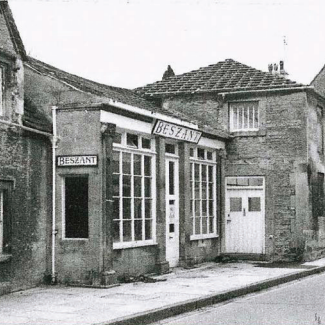Born in 1827, Richard Balch was married at the age of 24 and running the family business at no 11 High Street. Balch was an elected trustee of local charities, and a director of the troubled Gas and Water Companies of the day. He was appointed coroner for Corsham, an ancient office dating from the time of the Charter of 1242.
In 1839 the family firm became Beszant and Balch, and Richard Balch moved to Lypiatt Farm. He had much to do with the opening up of building land in the area, including Hastings Rd, South Street, The Cleeve, and the Golden Path.
It was around this time that panic hit Corsham, when it was learned that only FIVE grave sites remained in the whole parish. Richard offered land for “instant internment”. Had his offer been accepted future funerals would have terminated in the Lypiatt Road area!
The burgeoning stone industry was producing many workers searching for building plots, and Richard obliged. Many quarrymen and masons then received their pay, half of which came in ashlar stone, helping one another to build their houses. This led to the establishment of South Street and the Cleeve.
By 1851 Richard was living at 11 High Street with his wife and daughter, and running the family business of butcher and slaughterhouse.
The final accolade for Richard Balch was his election as “Coroner for the Liberties of Corsham”. The appointment of a coroner was granted in the Royal Charter of about 1230. Corsham was then exempted from the jurisdiction of the Sheriff of Wiltshire, and held its own Courts. This privilege survived until the First World War.
Richard Balch died in 1915. His “genial presence” was recorded as being especially missed at the meetings of the Court Leet.” (Another legacy from the Royal Charter).
